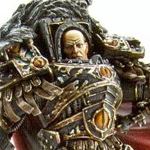|
Moriatti posted:YOu are and it's been full since I bought my ticket and I HATE IT. We still have seats at the live show! Seriously though we planned for two game sessions but the other one got caught in limbo because the organizers couldn't get the idea of "The system will be a mystery picked from one of the episodes of our show" through their heads. I'm bummed because we WERE gonna run a Vanishing Point game. theironjef fucked around with this message at 02:30 on Jul 27, 2018 |
|
|
|

|
| # ? May 28, 2024 22:59 |
|
Forgive my lack of Insider Knowledge, but what's your show?
|
|
|
|
Sometimes I put in puzzles because they're fun and my players like them
|
|
|
|
Countblanc posted:Forgive my lack of Insider Knowledge, but what's your show? Oh, sorry. System Mastery. We review old roleplaying games and talk about design and pitfalls and stuff.
|
|
|
|
Also Expounded Universe, where they review old, bad star wars books. Also Who Eats This Cheap poo poo, where they make regrets.
|
|
|
|
BinaryDoubts posted:Sometimes I put in puzzles because they're fun and my players like them Mods?????
|
|
|
|
kingcom posted:Set piece puzzle fights are extremely good and key to making D&D combat fun in general.
|
|
|
|
dwarf74 posted:Yes, but you see, a character with a high Intelligence and a background in tactics would know more about it than you, the player, and therefore No see, I agree with the set piece puzzle fights. Those are rad as gently caress and very good. I don't want to be dungeon crawling and have the GM be all "Ye shall solve this stodgy old chess puzzle I found in the gamefaqs walkthrough of 7th Guest and then a dagger shall be thine."
|
|
|
|
theironjef posted:No see, I agree with the set piece puzzle fights. Those are rad as gently caress and very good. I don't want to be dungeon crawling and have the GM be all "Ye shall solve this stodgy old chess puzzle I found in the gamefaqs walkthrough of 7th Guest and then a dagger shall be thine." I'm saying it's kinda disingenuous to say, "my 18 Int character solves the puzzle" but not "my 18 Int tactician solves the combat." Solving poo poo is fun, when nobody is being a dick about it.
|
|
|
|
dwarf74 posted:I mean, I get that there are preferences and that some puzzles are lovely. The difference is in the puzzle combat you're interacting with the game mechanics in a clever way, whereas when you're solving a riddle you're not interacting with the mechanics at all.
|
|
|
|
dwarf74 posted:I mean, I get that there are preferences and that some puzzles are lovely. The game gives you tools for that second one though. If you're playing a warlord (gently caress 5e) and you got a high int then yeah, you're solving the gently caress out of that combat with some hot tasty +4s and some wicked sweet tactical abilities. Do added riddles do that? If you come across a door with like "16, 06, 68, 88, __, 98" on it and you're like "Oh hey I am plenty smart can I get a +4 to solve this riddle?" Well no, you can't because what's a +4 to "the answer is 78"? So they're not the same poo poo, are they? It's not disingenuous. Now if there was a puzzle where your INT could come into play (maybe it narrows down the possible answers out of a list or something) then I'd have no beef. And yeah, puzzles that are solved through combat stuff are hugely different because they're a test of mechanical execution in addition to comprehension. Can the party figure out how their mechanics can solve this challenge? That's good stuff. theironjef fucked around with this message at 05:55 on Jul 27, 2018 |
|
|
|
fool_of_sound posted:The difference is in the puzzle combat you're interacting with the game mechanics in a clever way, whereas when you're solving a riddle you're not interacting with the mechanics at all.
|
|
|
|
dwarf74 posted:Talking, making decisions, and figuring poo poo out are literally most of the activity in an RPG. That's true of like... going out for dinner. I don't want any loving puzzles there either, unless they're on the placemat and I get crayons.
|
|
|
|
Puzzles can be fine but they are pretty difficult to do in a way that keeps the whole group engaged (and not just the person with en affinity for them) and actually engages the game mechanics in some fashion. Also from a GM perspective, designing a good and clever puzzle is very
|
|
|
|
theironjef posted:The game gives you tools for that second one though. If you're playing a warlord (gently caress 5e) and you got a high int then yeah, you're solving the gently caress out of that combat with some hot tasty +4s and some wicked sweet tactical abilities. I mean that poo poo is terrible. Bringing mechanics into it doesn't make it any good. But yes! Stats should help in a puzzle, just like skills, but the basic activity of solving a puzzle that's not a sweet-rear end tactical combat is a completely reasonable rpg activity.
|
|
|
|
dwarf74 posted:Isn't that last part literally just the bullshitty and awful "my wizard casts a spell and solves the problem" though? By last part you mean execution test in a combat puzzle? I mean yeah, if you're stuck playing some bullshit wizard supremacy game. I meant like the example fool of sound was giving in the first place, you know like "The group has stand in this particular configuration and destroy the five gems before they sink into plinths, or the floor is fire for a turn and then this whole thing resets and also an owlbear shows up." Or like "This fight takes place in a raging current. Everyone gets pushed six squares every turn towards the South, but there are statues you could shove over into the water to create current breaks so you can fight without going off the falls."
|
|
|
|
theironjef posted:That's true of like... going out for dinner. I don't want any loving puzzles there either, unless they're on the placemat and I get crayons. But for real, can't have an RPG without the talky stuff.
|
|
|
|
More block puzzles, less chess puzzles imo.
|
|
|
|
theironjef posted:By last part you mean execution test in a combat puzzle? I mean yeah, if you're stuck playing some bullshit wizard supremacy game. I meant like the example fool of sound was giving in the first place, you know like "The group has stand in this particular configuration and destroy the five gems before they sink into plinths, or the floor is fire for a turn and then this whole thing resets and also an owlbear shows up." Or like "This fight takes place in a raging current. Everyone gets pushed six squares every turn towards the South, but there are statues you could shove over into the water to create current breaks so you can fight without going off the falls." I just think it's a weird line to draw in the sand. Moving your dudes around a battle-mat to solve the plinth puzzle is good, but solving a similar plinth puzzle to open a vault door out of combat is bad?
|
|
|
|
dwarf74 posted:Hey all that stuff is great, and I do it whenever possible. Sure. If that second puzzle uses game mechanics in some way. I guess I should specify that for me puzzles in combat are like 95% execution and creative use of combat tools. Like I'd rather present the puzzle of "the same guy has to hit these two switches that are 30 squares apart from each other within 1 round of each other, can you figure that out?" than "There's two switches and each has a drawing of an identical lizard man on it can you figure that out?" Even if I did I'd let players float solutions and eventually just roll something to be like "Oh right, it's the first example."
|
|
|
|
There's a lot of activities in an average RPG session that don't interact with the mechanics, or do so awkwardly (diplomacy checks vs. the player coming up with a good argument, or just plain decision-making about what to do next, for instance). Singling out puzzles as somehow over the line is really weird to me. I mean, know your group, if they aren't going to be game for it, don't put them in - but that's the same exact advice for every part of a game, be it dramatic scenes or tough combats or whatever. As with anything else, puzzles shouldn't be make or break (solve this or the story doesn't continue) but again, that's the same as every other element in an adventure.
|
|
|
|
BinaryDoubts posted:There's a lot of activities in an average RPG session that don't interact with the mechanics, or do so awkwardly (diplomacy checks vs. the player coming up with a good argument, or just plain decision-making about what to do next, for instance). Singling out puzzles as somehow over the line is really weird to me. I mean, know your group, if they aren't going to be game for it, don't put them in - but that's the same exact advice for every part of a game, be it dramatic scenes or tough combats or whatever. As with anything else, puzzles shouldn't be make or break (solve this or the story doesn't continue) but again, that's the same as every other element in an adventure. Honestly, I'd put Diplomacy checks vs. the player coming up with a good argument as another line. If your players can just fart their way past a mechanical check that they presumably invested build resources in, why is that mechanic in the game? You wouldn't let a player skip rolling to hit because he described his sword swing really cool, right? If something like I bullshit my way past social challenges happens more than twice, maybe ditch social mechanics in favor of free form RP.
|
|
|
|
dwarf74 posted:Talking, making decisions, and figuring poo poo out are literally most of the activity in an RPG. I mean, I guess we can look at in the context of puzzles in an adventure game. If you are using critical thinking to synthesize from collected clues and tools, that's a good puzzle. When you're asked to play a dumbass minigame that has nothing to do with anything else, that's obnoxious filler. Basically the same principle holds true in RPGs.
|
|
|
|
theironjef posted:You wouldn't let a player skip rolling to hit because he described his sword swing really cool, right? tbh I probably would
|
|
|
|
Andrast posted:tbh I probably would i have definitely done this
|
|
|
|
Andrast posted:tbh, I probably would gently caress it, same. But yeah. I'm all for ditching mechanics or including them, but not half-assing it so that players feel like their investments in design were wasted. If I design Social-Fu, the mega smooth talker who has +20 to get what he wants from this goddamn duke, and the duke is smoothed by Rangerman, the man who is a ranger, who is -20 to social poo poo because he dumped that noise, but still the player thought to say "I bet you like... Duke stuff" before rolling for social initiative or whatever, then I'd be fairly pissed. Why? Because every combat I can't reasonably expect to perform like Rangerman by just saying "I bet you like... arrows" and getting a free crit.
|
|
|
|
theironjef posted:Honestly, I'd put Diplomacy checks vs. the player coming up with a good argument as another line. If your players can just fart their way past a mechanical check that they presumably invested build resources in, why is that mechanic in the game? You wouldn't let a player skip rolling to hit because he described his sword swing really cool, right? If something like I bullshit my way past social challenges happens more than twice, maybe ditch social mechanics in favor of free form RP. A lot of social events can basically be puzzles with free-form elements. (and more accomodations for outside the box solutions. Or just rolling really well) I feel it can work better when players have in-game resources they can spend to get through them, but also possibly figure it out for themselves, rewarding them for being clever but not bogging them down until they come up with the right answer. (That said, I'm thinking more along the lines of daily powers than money)
|
|
|
|
Personally I find interacting with the narrative to be the most enjoyable "mechanic" in most tabletop RPGs so puzzles that make sense in universe do use the game mechanics from that point of view
|
|
|
|
fool_of_sound posted:The difference is in the puzzle combat you're interacting with the game mechanics in a clever way, whereas when you're solving a riddle you're not interacting with the mechanics at all. Talking about players having spent character building resources and stuff is very game-specific, and even in the games where such things exist, it seems easily solvable by being upfront about those resources do and making it clear that, no, you don't get to roll wis or int or whatever to solve the puzzle because we're playing a different sort of game. (Yeah it's better if your game doesn't have a stats whose names suggest they do that, such is the cost of d&d-isms as the default rpg configuration.) Jeffrey of YOSPOS fucked around with this message at 07:55 on Jul 27, 2018 |
|
|
|
Like I don't think you should bolt arbitrary puzzles in the middle of your otherwise combat-heavy grid battle game but, if you're trying to talk about what makes tabletop games fun in general, you've already gotten far too specific when you start talking about "combat resources". I think in-combat setpiece puzzles are indeed the way to do it if you are playing the former sort of game.
|
|
|
|
Combat Encounters (in a well designed system run by a competent GM): * obvious default goal * obvious default method of accomplishment * multiple, mutually inclusive routes to goal * strong feedback on viability of current approach * rapid feedback on viability of current approach * alternate goals available * encounter can be converted into a different encounter category * intuitive player skill component * player skill component heavily impacted and guided by character archetype * all players/characters co-operate toward solution * increased player skill easily applicable to later sessions * easily adjustable and augmentable specifics allow for variety between instances while still maintaining the same basic framework * gradated resolution/multiple tiers of success/multiple channels of success * effects of resolution often persist past encounter Social Encounters (in a well designed system run by a competent GM): * usually player-chosen default goal * obvious default method of accomplishment * multiple, mutually inclusive routes to goal * strong feedback on viability of current approach * rapid feedback on viability of current approach * alternate goals available * encounter can be converted into a different encounter category * intuitive player skill component * player skill component heavily impacted and guided by character archetype * user experience easily applicable to later sessions * easily adjustable and augmentable specifics allow for variety between instances while still maintaining the same basic framework * gradated resolution/multiple tiers of success/multiple channels of success * effects of resolution often persist past encounter It's not that combat and social encounters can't be viewed as puzzles, it's that if you view them as puzzles it becomes immediately obvious why other puzzles are usually awful. Splicer fucked around with this message at 08:49 on Jul 27, 2018 |
|
|
|
So, with the social interaction stuff, I worked over this problem a few years back when I was writing an RPG that included a lot of social activity and negotiation. The problem I had was that neither end of the spectrum was great: Basic option 1 is that you do it basically purely mechanically: Player: "I want to convince the Duke to fund our expedition." GM: "Sure, roll Diplomacy TN 20." Player: "I succeed." GM: "He agrees to fund your expedition." The advantage of this is that it reflects the choices you've made on your sheet, the big disadvantage is that it strips out a lot of the direct roleplaying elements that a lot of players enjoy. Basic Option 2 is that you do it purely narratively: Player: "Duke Fosworth, I understand that you are reluctant, but you've seen the result of our ignorance this very night! Without this expedition we will never truly understand the capabilities of the giant balloon animal invaders. We must track them to their source and learn the origin of these hellish beings." GM: "Good gracious you're right. Very well, the funds are yours!" Now the problem with this is that it doesn't, as people have pointed out, actually represent what's on your sheet. Now with the right group, you can have people who will voluntarily represent their sheet in their roleplay, but that's not a given, and it's hard to enforce. Also, there are often elements of mechanical systems that give bonuses, etc and... what does that mean in this situation. Finally, not everyone is that comfortable with this - not all players want to get all thespian. I came to recognise there are a couple of "solutions" to this problem: "Solution" 1: Roll first, roleplay second. Player: "I'm going to convince the Duke to fund the expedition. I get a 24." GM: "Great, the TN was 20 so you're going to convince him, but it's not going to be easy." Player: "Duke Fosworth, I understand that you are reluctant, but you've seen the result of our ignorance this very night! Without this expedition we will never truly understand the capabilities of the giant balloon animal invaders. We must track them to their source and learn the origin of these hellish beings." GM: "But how can you be sure that this will tell us the things we need to know? Are we not better off investing in giant pin production in order to combat this menace head on?" Player: "Your Grace, that can only be a temporary solution - there's no evidence this plague will stop of its own accord." GM: "Perhaps you are right. Very well, the funds are yours, and may the gods have mercy on us if they attack and we are low on pins." Now this does work, but it also takes a lot of the punch out of things - you know in advance how it's going. It's the spoiler effect, in short. For my groups, at least, this felt a bit flat. "Solution" 2: Roleplay and give bonuses base on it Player: "Duke Fosworth, I understand that you are reluctant, but you've seen the result of our ignorance this very night! Without this expedition we will never truly understand the capabilities of the giant balloon animal invaders. We must track them to their source and learn the origin of these hellish beings." GM: "That's a pretty convincing argument, roll Diplomacy +4. TN 20." Player: "I get 24, success." GM: "Good gracious you're right. Very well, the funds are yours!" Now, I actually like this solution quite a bit - I tend to throw out bonuses for cool roleplay, clever ideas and approaches, and so on all the time, but it's not to everyone's tastes. Worse, it becomes very subjective indeed, and those players who don't want to thesp it up are still left out in the cold. Lupe's "Solution": what I pretentiously call the "crux method". I started trying to think about the structure of roleplaying, and how this is handled in other parts of systems. In particular, I started thinking about the conversation and concept of move triggers from Apocalypse World. For those not familiar, the way that AW works is that the game is a conversation, where you talk about what's happening. You create the fiction through this conversation, and moves are triggered by that fiction, and then their results inform the fiction and the direction of the conversation. It can be summarised as a flow like this: fictional trigger -> roll move -> results dictate fiction This is a pretty good model (for me at least) to explain my interactions with players in pretty much every system. They want to stab a dude in the back, well they establish the fiction (sneaking up behind them when they're distracted, and having a knife for that stabbing ready to go), then they roll (attack roll), and the results inform the fiction (they be a stabbed). That "roll" is the decision point in the flow, the crux where the fiction breaks and then flows in one of several possible directions. When I started thinking about it like this, I realised that social interactions can be handled in basically exactly the same way. The conversation if people want to thesp it up, or the outline of what they're trying to achieve and the circumstances if they don't, is the fiction establishing that moment of decision, that trigger, then the "move" is rolled, and the results dictate the flow of fiction from there. So, here's how that conversation goes with a thespy player: Player: "Duke Fosworth, I understand that you are reluctant, but you've seen the result of our ignorance this very night! Without this expedition we will never truly understand the capabilities of the giant balloon animal invaders. We must track them to their source and learn the origin of these hellish beings." GM: "But how can you be sure that this will tell us the things we need to know? Are we not better off investing in giant pin production in order to combat this menace head on?" Player: "Your Grace, that can only be a temporary solution - there's no evidence this plague will stop of its own accord." GM: "OK, he's ready to make his decision: roll Diplomacy, TN 20." Player: "24." GM: "He nods. 'Perhaps you are right. Very well, the funds are yours, and may the gods have mercy on us if they attack and we are low on pins.'" And with someone less thespy: Player: "I want to convince the Duke to fund our expedition." GM: "What's your argument for doing it?" Player: "Well we can work out where the hell these balloon things are coming from. Also, this is the dumbest plot hook ever, you suck." GM: "I know. OK, well, that's a good point, but he's worried spending money on that will mean they won't be able to stock up on pins for they get attacked." Player: "Yeah, but we know they're just going to keep coming otherwise." GM: "OK, roll Diplomacy, TN20." Player: "24" GM: "He nods. 'Perhaps you are right. Very well, the funds are yours, and may the gods have mercy on us if they attack and we are low on pins.'" Player: "I loving hate you." Just like needing a medical kit to do a first aid check, you need the elements of a convincing argument to do a diplomacy check. You need the fictional trigger to get to roll. Lupercalcalcal fucked around with this message at 09:33 on Jul 27, 2018 |
|
|
|
I think an important aspect in these social exchanges is fine control over The Stakes. That is to say, the problem with rolling such a high Bluff check that you can convince someone that You Are The Moon is less about it being completely mechanical, and more that such a "lie" can ever be told in the first place. In a similar way, the reason why GMs might want to override these sorts of things is that if you can't control what social interactions are capable of, it has the potential of "bypassing" a lot of content. In Diablo 2, you're not supposed to be able to enter the Lut Gholein Palace until about halfway past the other quests in Act 2 ... but what if a player really tried to convince Greiz the Guard to let them through? Whether that's done via narrative RP or with a straight roll, the GM is going to feel like they might not want to allow that because it skips a lot of stuff. Ditto for getting to the "end boss" and making the case that your Diplomacy check of 50 is high enough to get the Big Bad to drop their weapons and reform their life. From a gameplay perspective, it makes perfect sense to say "no, that's not going to work", and I would venture that a lot of people sitting across from the GM would agree, because it means not actually playing the game you set out to play, but it does raise a question of whether that kind of thing should be represented in a rule, rather than relying on GM fiat.
|
|
|
|
https://twitter.com/Ettin64/status/1022785917122097152?s=19 I'm so mad
|
|
|
|
I can't believe Loss the RPG is being made real.
|
|
|
|
It's actually incredible how well they're able to capture the look of CAD-era webcomics, someone's going to look at that and have a Mandela Effect moment.
|
|
|
|
quote:When you enter Drama Mode, you must choose one of these Serious Events: Yeah this is pretty good.
|
|
|
|
yo that sample art hits much too close to home. e: I can see the whole web of character relations in my head and it's scaring me. The girls never have a strip where it's just them. Hell, I can see individual strips in my head. Granted that's all most likely because it's straight up reskinned CAD, but still unsettling. My Lovely Horse fucked around with this message at 15:14 on Jul 27, 2018 |
|
|
|
theironjef posted:We still have seats at the live show! I mean, that's fair. Seeing you guys was half of it, I also wanted to play Strike! instead of running it.
|
|
|
|

|
| # ? May 28, 2024 22:59 |
|
Wait, is the art of the goth girl based on the image of the goth girl that Buckley copied for HIS goth girl? Because that's a good pull. goth girl
|
|
|


























